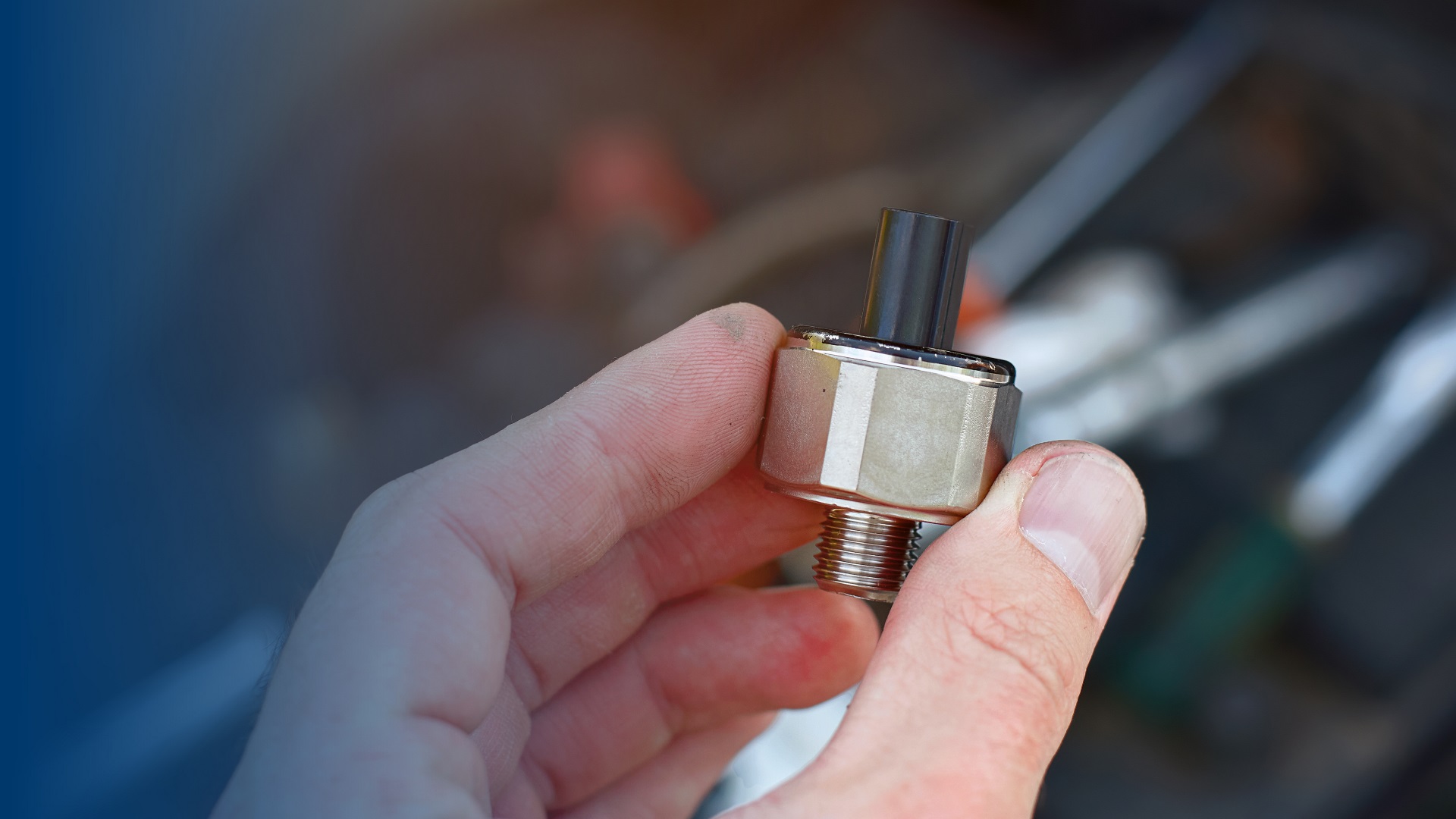Innovation and quality are our commitments, and this is evident throughout our sensor portfolio.
Delphi's best and brightest have engineered and manufactured engine, emissions, and safety sensors that meet the highest standards of precision and reliability.
Engine sensors
Engine sensors track parameters like pressure, airflow, and temperature in real time. This data is sent to the Electric Control Unit (ECU), which adjusts functions like ignition timing to ensure optimal performance.
Delphi's range offers extensive coverage and best-in-class performance, covering camshaft (78% EMEA coverage), crankshaft (82% EMEA coverage), knock (74% EMEA coverage), MAF (85% EMEA coverage), MAP (77% EMEA coverage), and oil pressure (75% EMEA coverage) sensors.
Let's spotlight some of our engine sensors.
Camshaft sensors
Featuring a digital output design, our camshaft sensors meet OE specifications. They maximise the signal-to-noise ratio, which optimises valve timing to boost power at higher engine speeds without sacrificing fuel economy at lower speeds.
• Designed to OE specifications
• Digital output for better signal-to-noise ratio
• Improves engine performance and fuel efficiency
Crankshaft sensors
Crankshaft sensors enable the ECU to accurately adjust fuel injection timing. They optimise combustion, reduce emissions, and ensure long-lasting performance—even in challenging conditions.
• Optimises combustion, reducing emissions
• Robust construction for longevity
Knock sensors
Delphi's knock sensors use piezoelectric crystals to generate voltage when they detect engine knock. The ECU can then tweak ignition timing or fuel mixture, protecting the engine against damage.
• Uses piezoelectric crystals for precision
• Prevents engine damage by adjusting ECU parameters
Emissions sensors
Emissions sensors monitor and control pollutants emitted by vehicles. An accurate sensor can reduce harmful emissions, resulting in a more sustainable, environmentally friendly driving experience.
Our range includes diesel particulate filters or DPF (76% EMEA coverage), exhaust gas temperature (55% EMEA coverage), NOx (70+ million vehicles covered), and oxygen sensors (82% EMEA coverage).
Here's an overview of our emissions sensors.
Exhaust gas temperature sensors
These sensors measure temperatures with incredible accuracy.
• Measures temperatures between -40 °C and 900 °C
• Jumps to 300 °C in just 11 milliseconds
DPF sensors
We build our DPF sensors with silicon carbide to support multiple regeneration cycles.
• Constructed with robust silicon carbide
• Features a precious metal wash coat for added durability
• Has OE heritage and support
Oxygen sensors
These sensors feature a planar sensing element with an integrated heater and patented poison protection coating.
• Has a dual-layer protection shield for reliability
• Features dry-to-touch anti-seize compound
• Housed in stainless steel
NOx sensors
These sensors measure NOx levels ranging from 0-3,000 ppm with high precision.
• Lasts 800 hours at 85 °C in SCU testing
• Functions from -40 °C to +850 °C
Safety sensor
Compatible with over 260 million vehicles, our ABS (anti-lock braking system) sensor offers the second-highest coverage in the market. This product includes 70 parts engineered specifically for hybrid and electric vehicles (EVs).
We test our ABS sensors to ensure they meet OE standards. After 100 hours at 150 °C in SCU testing, Delphi's sensors demonstrated their extended lifespan and minimal maintenance needs. Plus, they operate between -40 °C and 850 °C, guaranteeing sensor functionality in harsh environments where competitors fail.
• Keeps dirt, moisture, and other contaminants out using weather-pack connectors
• Protects against corrosion with plated pins
• Delivers reliable signals in all conditions
Performance and accuracy—guaranteed
You demand reliability. Delphi makes sure of it.
Our full sensor portfolio undergoes rigorous testing to ensure performance and accuracy, whatever the conditions.
- Contamination: We use salt fog and contamination tests with engine oil, coolant, and brake fluid. Our sensors must show less than a 0.5% performance change.
- Electrical: Sensors must maintain resistance within 10% of OE parts and output signals within 10% of OE parts.
- Durability: We use drop tests, vibration tests, and thermal shock tests. Our sensors must withstand it all.
Leading the way
Excellence and innovation is what we're all about. When you choose a Delphi sensor, you know you are getting a part that's tried and tested—one that meets or exceeds industry standards.
Our dedication to quality extends to your workshop. Our Workshop Solutions page gives you access to technical advice, hands-on guides, and more.
We are working toward a safer, more efficient automotive industry. Let's lead the way—together.




